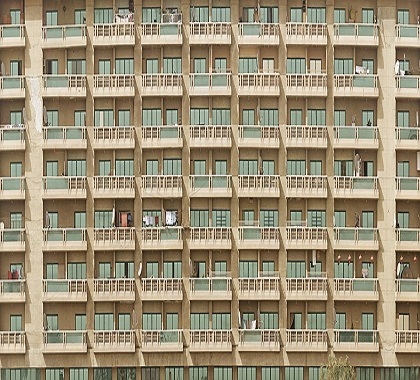Voters in Jersey City, New Jersey will decide the fate of a controversial ordinance that restricts short-term room and apartment rentals, when they go to the polls on November 5.
The Jersey City Council in June unanimously adopted an ordinance that bans tenants from subletting their space for short-term rentals, limits rentals by property owners who do not live on site to a total of 60 days per year, and bans short-term rentals in any building comprising four or more units.
A property owner will have to obtain an annual permit from the city’s Division of Housing Preservation to engage in short-term rentals. The ordinance marks a reversal of policy for Jersey City, which in 2015 became the first U.S. city to legalize peer-to-peer rentals.
Petition to Repeal Ordinance
Opponents of the ordinance submitted to City Hall in mid-July a petition with 20,000 signatures to put the ordinance to a voter referendum on the November ballot. The city clerk certified the petition had enough signatures on August 7. Under city law, the number of signatures required to get a measure on the ballot is 15 percent of the vote in the last municipal election, or 6,300 signatures in the current case. Opponents of the ordinance gathered more than three times that number.
Jersey City property owners are angry about the ordinance, says Tom DeWeese, president of the American Policy Center.
“It’s no wonder that 20,000 people signed the petition to put the fate of the ordinance in the hands of voters this November,” DeWeese said. “They are rightly outraged at the city’s complete disregard of their property rights. People in Jersey City are to be commended for saying, ‘Enough is enough.'”
Housing Shortage
Situated on the Hudson River across from Manhattan Island, Jersey City provides a convenient jumping-off point for tourists who want to visit New York City but avoid the Big Apple’s pricy hotels.
Short-term rentals are making it difficult for people to obtain permanent housing at a time of low vacancy rates throughout the city, says Council Member James Solomon, a cosponsor of the ordinance.
“People have seen negative impacts by these investors and sort of corporate people coming in and buying up huge chunks of property and turning them into Airbnbs and basically, unstaffed hotels and neighborhoods taking away apartments from long-term rentals,” Solomon said, the Jersey Journal reported on July 18.
‘Nanny-State Ordinances’
Housing shortages are a problem in urban areas across the country, says Tom Randall, president of Winningreen, a Chicago communications firm.
“Jersey City is not alone in facing a housing shortage,” Randall said. “The problem can be found in many urban areas, stretching from Boston to San Francisco.”
The cure for shortages of affordable housing is to free up markets, Randall says.
“It is best dealt with by removing regulatory barriers that inhibit the construction of new housing units, not by passing nanny-state ordinances that undermine entrepreneurial initiatives of property owners,” Randall said.
Money for Owners, City
The short-term rental market, led by Airbnb, has brought big economic benefits to Jersey City. The city’s property owners made $32 million last year on short-term rentals, Airbnb reports.
Airbnb reports short-term rentals welcomed 181,000 guests in Jersey City last year.
“The vast majority of the listings are properties into which local residents have invested thousands or even millions of dollars to restore or maintain then,” Airbnb states.
Airbnb also noted short-term-rentals, which are subject to the city’s hotel tax, provided an additional $4 million in revenues last year.
Airbnb currently has more than 3,100 listings for Jersey City.
Cities Infringe Property Rights
Voters overturned anti-Airbnb ordinances in California—one in San Diego and the other in Palm Springs—in 2018. In Palm Springs, 70 percent of the voters approved the ballot initiative to repeal the ordinance.
Last year in San Francisco, a restrictive ordinance cut the number of rental listings by 45 percent. Meanwhile, rental prices in the city rose by an average of 8 percent. New York City—where it is estimated half the short-term rentals are illegal under current restrictions—has enacted even tighter regulations than San Francisco.
Restrictions on the development and use of residential property are spreading, DeWeese says.
“Similar infringements of our fundamental rights are happening across the country, brought about by a political class determined to impose its will on ordinary people,” DeWeese said.
“In Oregon and Minnesota, for example, efforts are well underway to do away with single-family houses in favor of putting up high-rise apartment buildings in their place,” DeWeese said.
Bonner R. Cohen, Ph.D. ([email protected]) is a senior fellow at the National Center for Public Policy Research.
Internet Info
Ashley Herzog, “New York City Puts New Regulations on Housesharing,” August 14, 2018, Budget & Tax News: https://heartland.org/news-opinion/news/new-york-city-puts-new-regulations-on-housesharing





